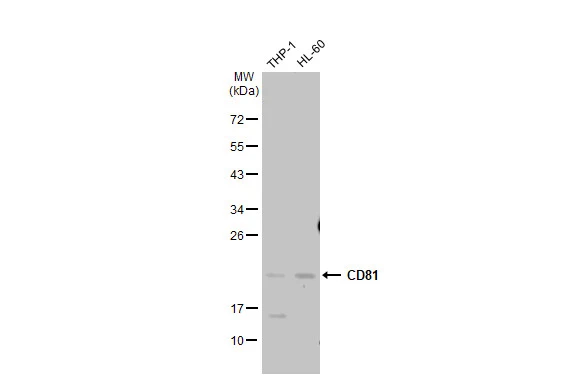
Various whole cell extracts (30 μg) were separated by 12% SDS-PAGE, and the membrane was blotted with CD81 antibody (GTX101766) diluted at 1:1000. The HRP-conjugated anti-rabbit IgG antibody (GTX213110-01) was used to detect the primary antibody.
CD81 antibody
GTX101766
ApplicationsFlow Cytometry, ImmunoFluorescence, Western Blot, ImmunoCytoChemistry, ImmunoHistoChemistry, ImmunoHistoChemistry Paraffin, Neutralisation/Blocking
Product group Antibodies
ReactivityHuman, Mouse, Rat
TargetCD81
Overview
- SupplierGeneTex
- Product NameCD81 antibody
- Delivery Days Customer9
- Application Supplier NoteWB: 1:500-1:3000. IHC-P: 1:100-1:1000. FCM: 1:50-1:200. *Optimal dilutions/concentrations should be determined by the researcher.Not tested in other applications.
- ApplicationsFlow Cytometry, ImmunoFluorescence, Western Blot, ImmunoCytoChemistry, ImmunoHistoChemistry, ImmunoHistoChemistry Paraffin, Neutralisation/Blocking
- CertificationResearch Use Only
- ClonalityPolyclonal
- Concentration0.5 mg/ml
- ConjugateUnconjugated
- Gene ID975
- Target nameCD81
- Target descriptionCD81 molecule
- Target synonymsCVID6, S5.7, TAPA1, TSPAN28, CD81 antigen, 26 kDa cell surface protein TAPA-1, CD81 antigen (target of antiproliferative antibody 1), tetraspanin-28, tspan-28
- HostRabbit
- IsotypeIgG
- Protein IDP60033
- Protein NameCD81 antigen
- Scientific DescriptionThe protein encoded by this gene is a member of the transmembrane 4 superfamily, also known as the tetraspanin family. Most of these members are cell-surface proteins that are characterized by the presence of four hydrophobic domains. The proteins mediate signal transduction events that play a role in the regulation of cell development, activation, growth and motility. This encoded protein is a cell surface glycoprotein that is known to complex with integrins. This protein appears to promote muscle cell fusion and support myotube maintenance. Also it may be involved in signal transduction. This gene is localized in the tumor-suppressor gene region and thus it is a candidate gene for malignancies. [provided by RefSeq]
- ReactivityHuman, Mouse, Rat
- Storage Instruction-20°C or -80°C,2°C to 8°C
- UNSPSC41116161

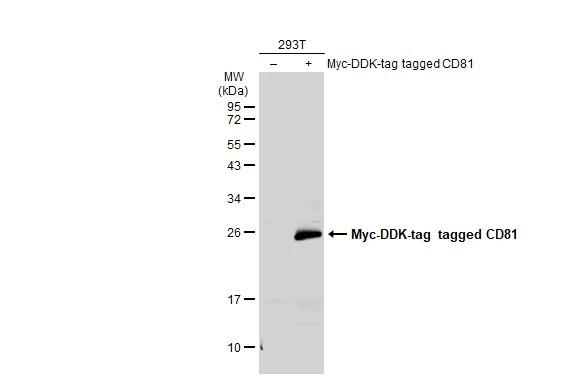
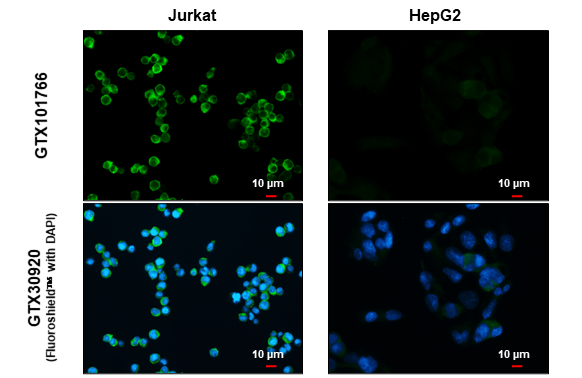
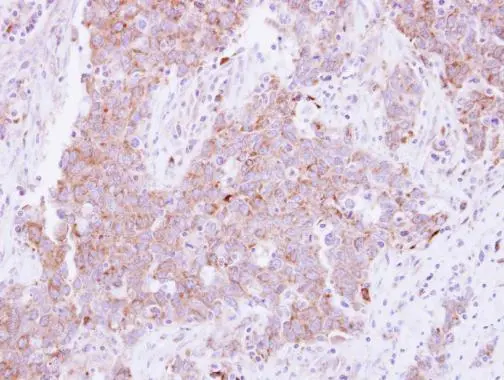
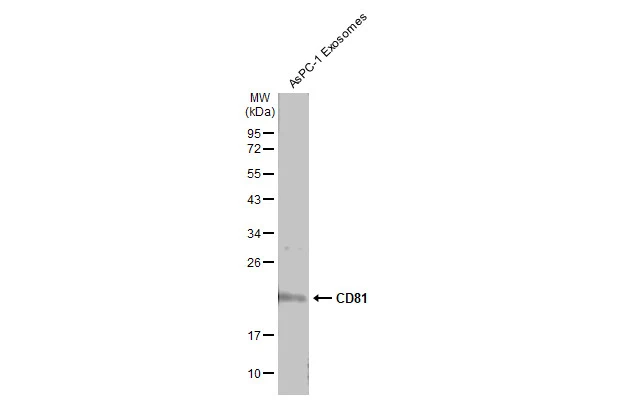
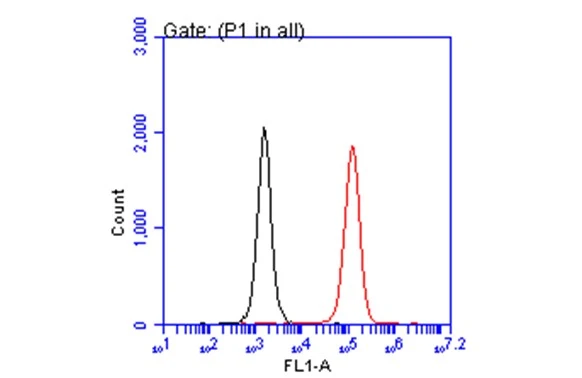
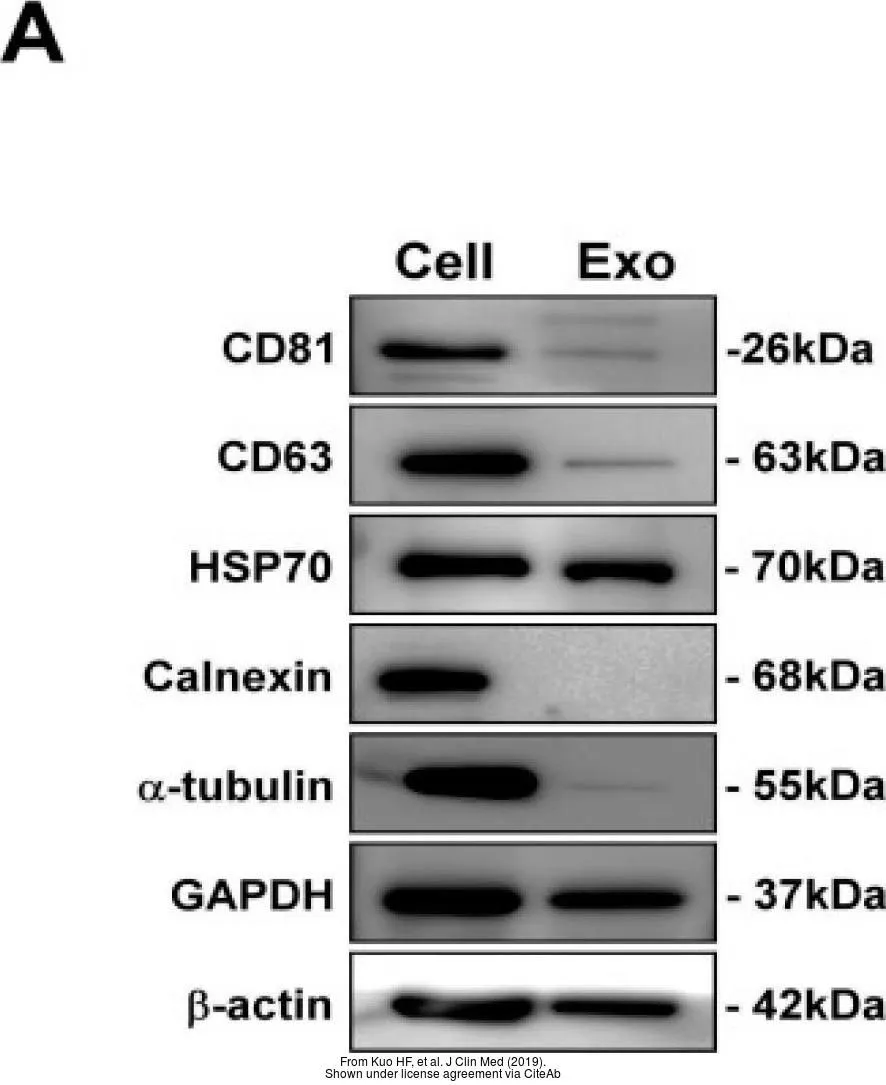
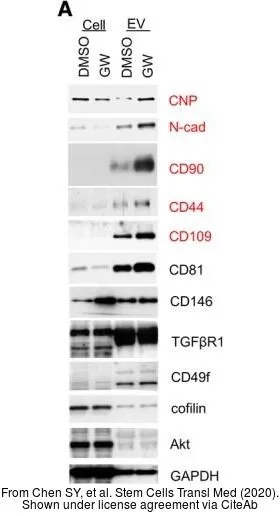
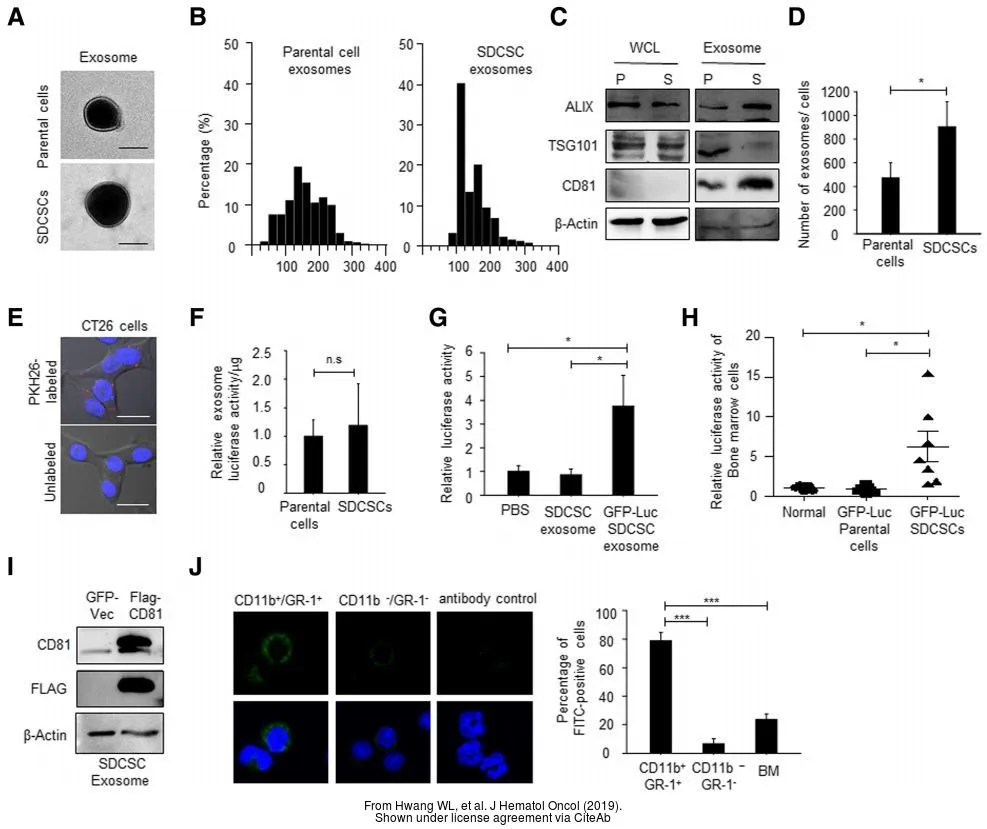
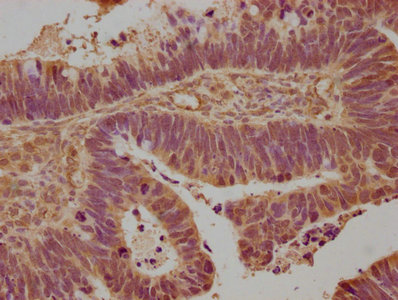





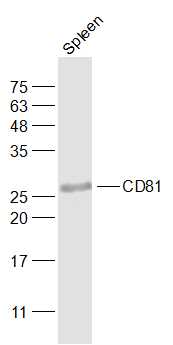

![SU86.86 exsosome extracts (1 μg) was separated by 12% SDS-PAGE, and the membrane was blotted with CD81 antibody [HL1666] (GTX637264) diluted at 1:5000. The HRP-conjugated anti-rabbit IgG antibody (GTX213110-01) was used to detect the primary antibody.](https://www.genetex.com/upload/website/prouct_img/normal/GTX637264/GTX637264_T-44753_20220819_WB_Fraction_22082402_884.webp)
![CD81 antibody [HL1667] detects CD81 protein by immunofluorescent analysis. Sample: Jurkat and HepG2 cells were fixed in 4% paraformaldehyde at RT for 15 min. Green: CD81 stained by CD81 antibody [HL1667] (GTX637265) diluted at 1:500. Blue: Fluoroshield with DAPI (GTX30920).](https://www.genetex.com/upload/website/prouct_img/normal/GTX637265/GTX637265_T-44753_20221007_ICC_IF_22102723_131.webp)